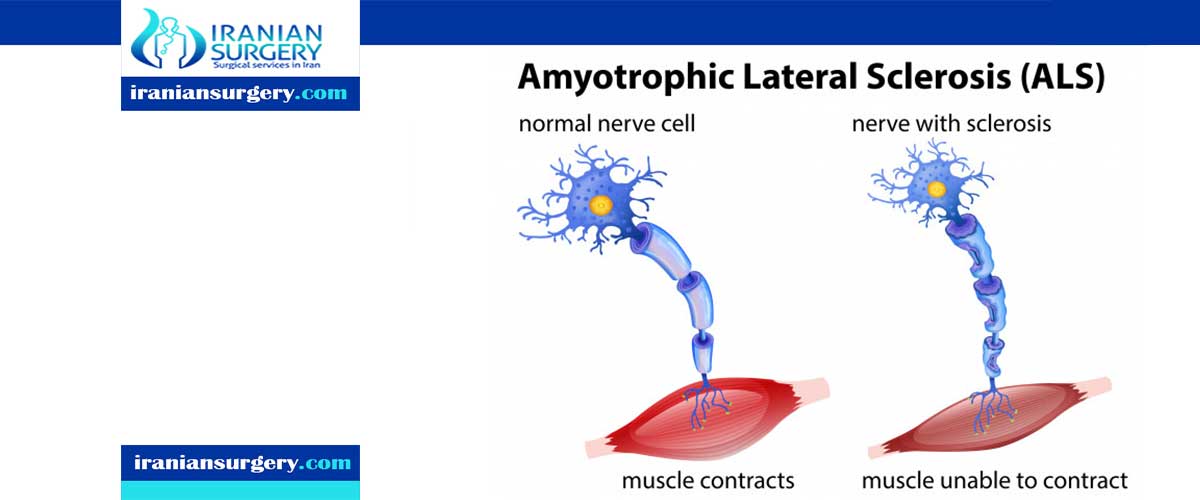Amyotrophic Lateral Sclerosis (ALS) treatment
No cure has yet been found for ALS. However, there are treatments available that can help control symptoms, prevent unnecessary complications, and make living with the disease easier.
In other words, treatments can’t reverse the damage of amyotrophic lateral sclerosis, but they can slow the progression of symptoms, prevent complications, and make you more comfortable and independent.
You might need an integrated team of doctors trained in many areas and other health care professionals to provide your care. This might prolong your survival and improve your quality of life.

Your team will help you select the right treatments for you. You have the right to choose or refuse any of the treatments suggested.
Medication
Physicians can also prescribe medications to help manage symptoms of ALS, including muscle cramps, stiffness, excess saliva and phlegm, and the pseudobulbar affect (involuntary or uncontrollable episodes of crying and/or laughing, or other emotional displays). Drugs also are available to help individuals with pain, depression, sleep disturbances, and constipation. Pharmacists can give advice on the proper use of medications and monitor a person’s prescriptions to avoid risks of drug interactions.
There are two medications which have proven helpful in slowing the progression of ALS and extending the life of those who have been diagnosed with the disease. While they have been shown to push back the time when you’ll need mechanical help to breathe, they can’t fix damage already done.
- Edaravone (Radicava): administered through IV, it is an antioxidant that can prevent damage to nerve cells from toxic substances called free radicals. But it is unclear how it works to slow the physical progression of patients with AlS, the most common side effects include bruising, unsteady gait, and headache.
- Riluzole (Rilutek): taken orally, it helps reduce damage to your motor nerves by reducing the amount of glutamate in your system. (Glutamate carries chemical messages to your nerves. Too much of it can damage the cells). The most common side effects include gastric distress, dizziness and bruising.
Physical therapy
Physical therapy and special equipment can enhance an individual’s independence and safety throughout the course of ALS. Gentle, low-impact aerobic exercise such as walking, swimming, and stationary bicycling can strengthen unaffected muscles, improve cardiovascular health, and help people fight fatigue and depression. Range of motion and stretching exercises can help prevent painful spasticity and shortening (contracture) of muscles.
Physical therapists can recommend exercises that provide these benefits without overworking muscles. Occupational therapists can suggest devices such as ramps, braces, walkers, and wheelchairs that help individuals conserve energy and remain mobile.

Speech therapy
People with ALS who have difficulty speaking may benefit from working with a speech therapist, who can teach adaptive strategies to speak louder and more clearly. As ALS progresses, speech therapists can help people maintain the ability to communicate. They can recommend aids such as computer-based speech synthesizers that use eye-tracking technology and can help people develop ways for responding to yes-or-no questions with their eyes or by other nonverbal means.
Some people with ALS may choose to use voice banking while they are still able to speak as a process of storing their own voice for future use in computer-based speech synthesizers. These methods and devices help people communicate when they can no longer speak or produce vocal sounds.
Nutritional support
Nutritional support is an important part of the care of people with ALS. It has been shown that individuals with ALS will get weaker if they lose weight. Nutritionists can teach individuals and caregivers how to plan and prepare small meals throughout the day that provide enough calories, fiber, and fluid and how to avoid foods that are difficult to swallow. People may begin using suction devices to remove excess fluids or saliva and prevent choking. When individuals can no longer get enough nourishment from eating, doctors may advise inserting a feeding tube into the stomach. The use of a feeding tube also reduces the risk of choking and pneumonia that can result from inhaling liquids into the lungs.
Breathing support
As the muscles responsible for breathing start to weaken, people may experience shortness of breath during physical activity and difficulty breathing at night or when lying down. Doctors may test an individual’s breathing to determine when to recommend a treatment called noninvasive ventilation (NIV). NIV refers to breathing support that is usually delivered through a mask over the nose and/or mouth. Initially, NIV may only be necessary at night. When muscles are no longer able to maintain normal oxygen and carbon dioxide levels, NIV may be used full-time. NIV improves the quality of life and prolongs survival for many people with ALS.
Because the muscles that control breathing become weak, individuals with ALS may also have trouble generating a strong cough. There are several techniques to help people increase forceful coughing, including mechanical cough assist devices and breath stacking. In breath stacking, a person takes a series of small breaths without exhaling until the lungs are full, briefly holds the breath, and then expels the air with a cough.
As the disease progresses and muscles weaken further, individuals may consider forms of mechanical ventilation (respirators) in which a machine inflates and deflates the lungs. Doctors may place a breathing tube through the mouth or may surgically create a hole at the front of the neck and insert a tube leading to the windpipe (tracheostomy). The tube is connected to a respirator.

Individuals with ALS and their families often consider several factors when deciding whether and when to use ventilation support. These devices differ in their effect on a person’s quality of life and in cost. Although ventilation support can ease problems with breathing and prolong survival, it does not affect the progression of ALS. People may choose to be fully informed about these considerations and the long-term effects of life without movement before they make decisions about ventilation support.


2 Responses
My father was diagnosed with amyotrophic lateral sclerosis (ALS) in the summer of 2013; His initial symptoms were quite noticeable. He first experienced weakness in his right arm and his speech and swallowing abilities were profoundly affected. We all did our best to seek help for this disease no medications they prescribe worked ,we were all scared we might lost him due to his condition, as he had been his brother’s caregiver a few years earlier for the same disease before he past. doctor recommend nuatural treatment from total cure herbal foundation for his ALS we have no choice to give a try on natural organic treatment ,this herbal cure has effectively reverse my father condition ,losing his balance which led to stumbling and falling stop after the completing the herbal supplement which include his weakness in his right arm and his speech, natural herbs from totalcureherbsfoundation .co m home remedy is the best although their service is a little bit expensive but it worth it, they save lives.
ALS progresses at different rates and affects different body parts first. My mother, being 80 at the time, fell into a category of what they call “fast progression” (older female). Her arms weakened first, then her hands, her mouth, and throat, and finally her lungs. Throughout her years ordeal, she was able to walk with assistance. We have to give a try on herbal supplement which effectively get rid of herbal ALS condition dramatically after her 15 weeks of her usage,she lost touch with reality. Suspecting it was the medication I took her off the riluzole (with the doctor’s knowledge) and started her on the ALS natural herbal formula we ordered. it advisable to always try natural herbs at first because totalcureherbsfoundation com neutralize her ALS/MND which surprise everyone at home.